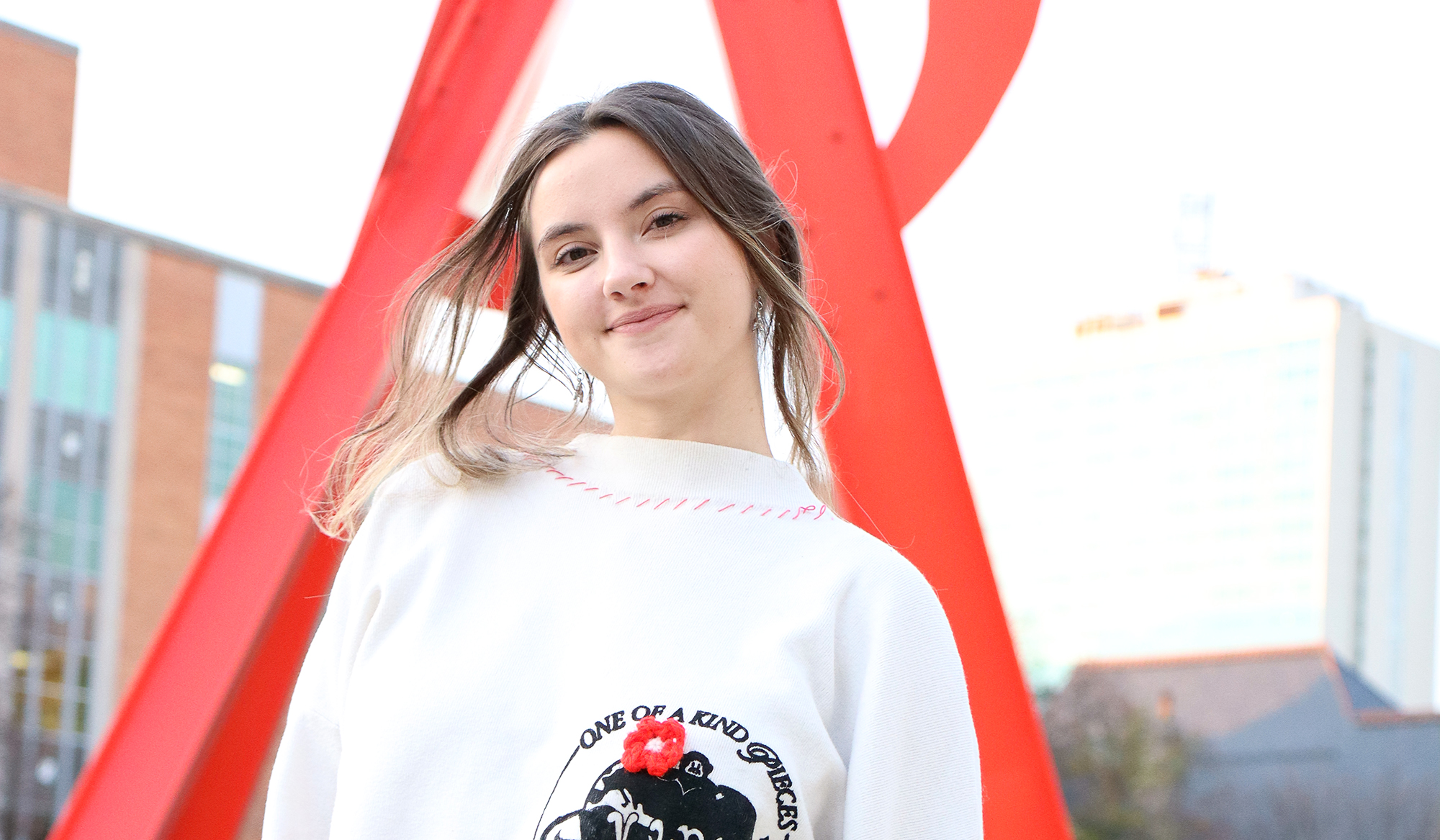Zero Waste Champion
•
Photos by Becky duffyhill
One day in 2013, Suzanne “Zan” Jones, MS’90, got a call from the outgoing director of Eco-Cycle, the Boulder, Colorado, nonprofit that manages the city’s recycling, asking if she would consider applying for his position.
Jones, who had built a career in environmental advocacy, demurred. She had decided her next job would confront a challenge she then perceived as unrelated.
“I don’t want to work on recycling,” she told him. “I want to work on climate change.”
“But, Suzanne, recycling is all about climate change,” he countered. “That’s why you have to take this job.”
She heeded his advice. Now, as the executive director of Eco-Cycle, she leads a social enterprise that not only handles Boulder’s recycling but also advocates for legislation that steers the state of Colorado toward a more climate-friendly future.
“If we are going to preserve the natural world for ourselves and all other living things, we need to address our consumption,” she says. “Recycling and circularity are a key part of that solution.”
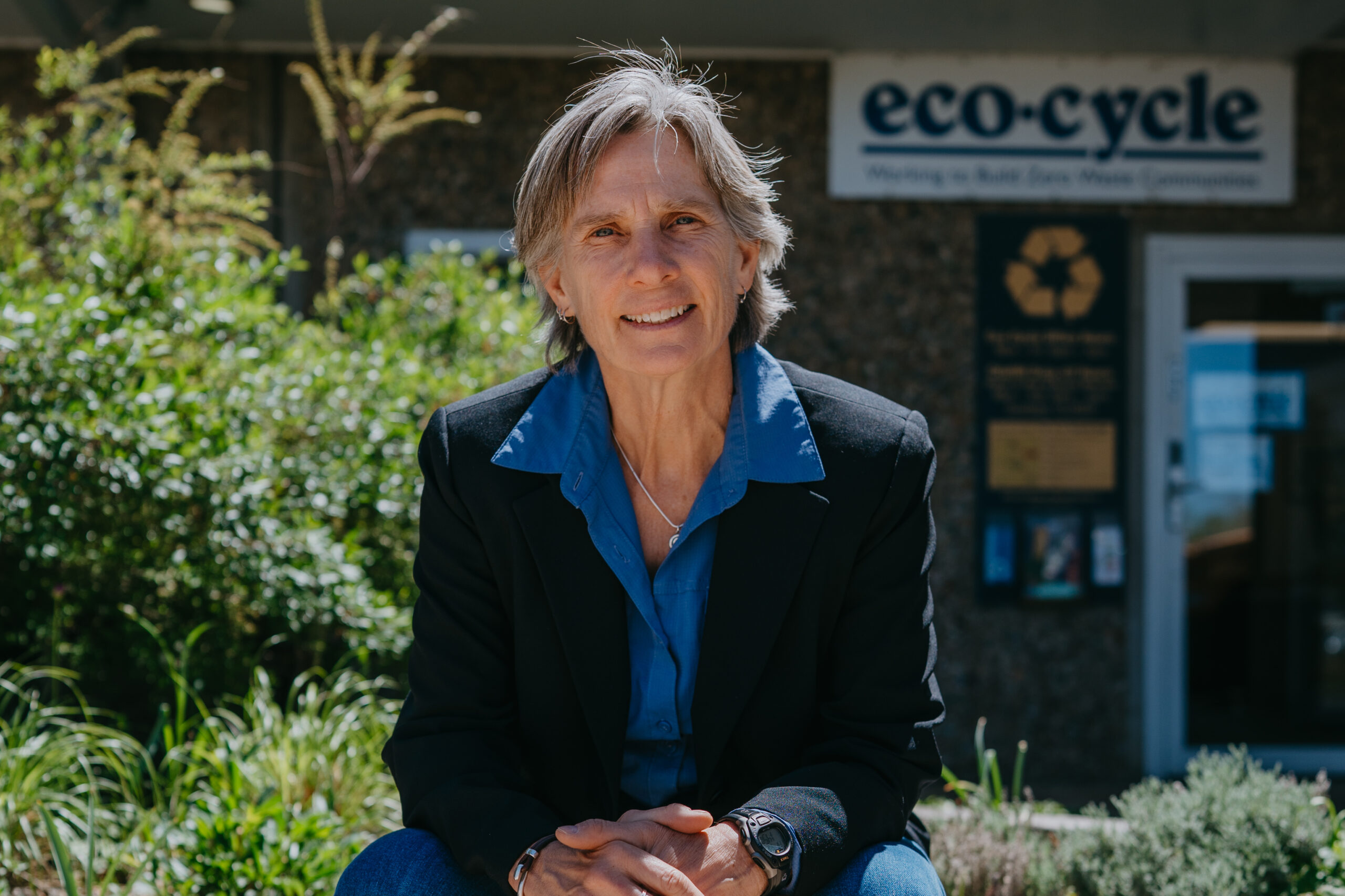
Passion and Policy
Jones grew up in Kansas City, Missouri, and developed an affinity for the Mountain West during summers spent with her family, including twin sister Elise Jones, MS’93, at a cabin in the Colorado Rockies. Her love for the outdoors prompted her to pursue a career in conservation.
She earned a degree in natural resources from Cornell University and dabbled in environmental education and work with the National Park Service. But Jones decided that, to save the planet, she needed to go into policy.
“I thought that that would be the most powerful tool to use in effecting change,” she says.
In the University of Michigan’s program in environmental policy and administration, she learned from husband-and-wife team Steven Yaffee, ’72, MS’73, who taught policy, and Julia Wondolleck, who taught negotiation and dispute resolution. Both areas of study later helped Jones negotiate bills to protect wilderness areas and develop language for zero waste legislation. She also fondly recalls Bert Barnes’ forest ecology class and its Friday-afternoon labs spent in the woods.
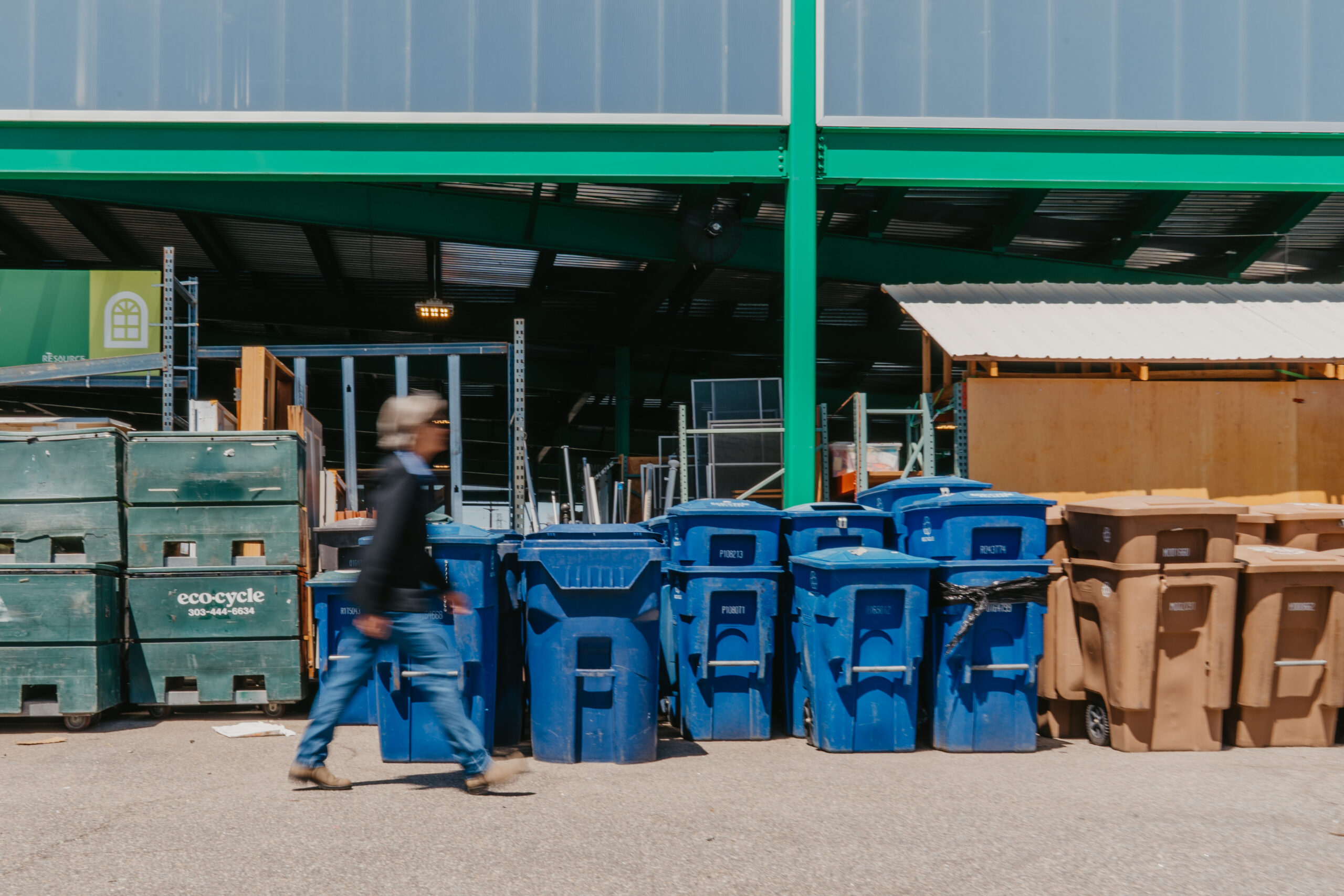
“The University of Michigan graduate program was very relevant to tackling the big problems in the world,” Jones says.
She spent three and a half years in environmental advocacy in Washington, D.C., before the political winds shifted in 1994 and she left for her dream job with the Wilderness Society. Over 16 years, she worked her way up to become the regional director for the Central Rockies and helped protect more than 1 million acres of public land in Colorado and Utah.
Meanwhile, Jones grew increasingly frustrated with Congress’ failure to tackle climate change in a meaningful way. She decided that local government was more likely to act, so she ran in 2011 for the Boulder City Council and was sworn in the same day she was laid off from the Wilderness Society during a restructuring. She spent the next two years learning the ropes on city council, and late in 2013 she got the call urging her to apply for the director position at Eco-Cycle.
Force For Good
Founded in 1976 to offer basic recycling, Eco-Cycle now provides multiple services that help the Boulder area move toward zero waste through more sustainable consumption. In an ideal zero waste community, at least 90 percent of discarded materials find a new life — through reuse, recycling, composting, or another mechanism — instead of being landfilled. Eco-Cycle runs Boulder County’s recycling center and offers environmental education in local public schools. Its Center for Hard-to-Recycle Materials accepts electronics, bubble wrap, printer cartridges, mattresses, and some 25 other materials and fits them for reuse or transformation into new products.
Jones quickly understood the connection between recycling and climate change. Making new products (and packaging) takes energy, as does disposing of them. Recycling is far less taxing on the environment. Recycling an aluminum can, for instance, requires 92 percent less energy than the mining, refining, and manufacturing required to make a new one out of virgin resources.
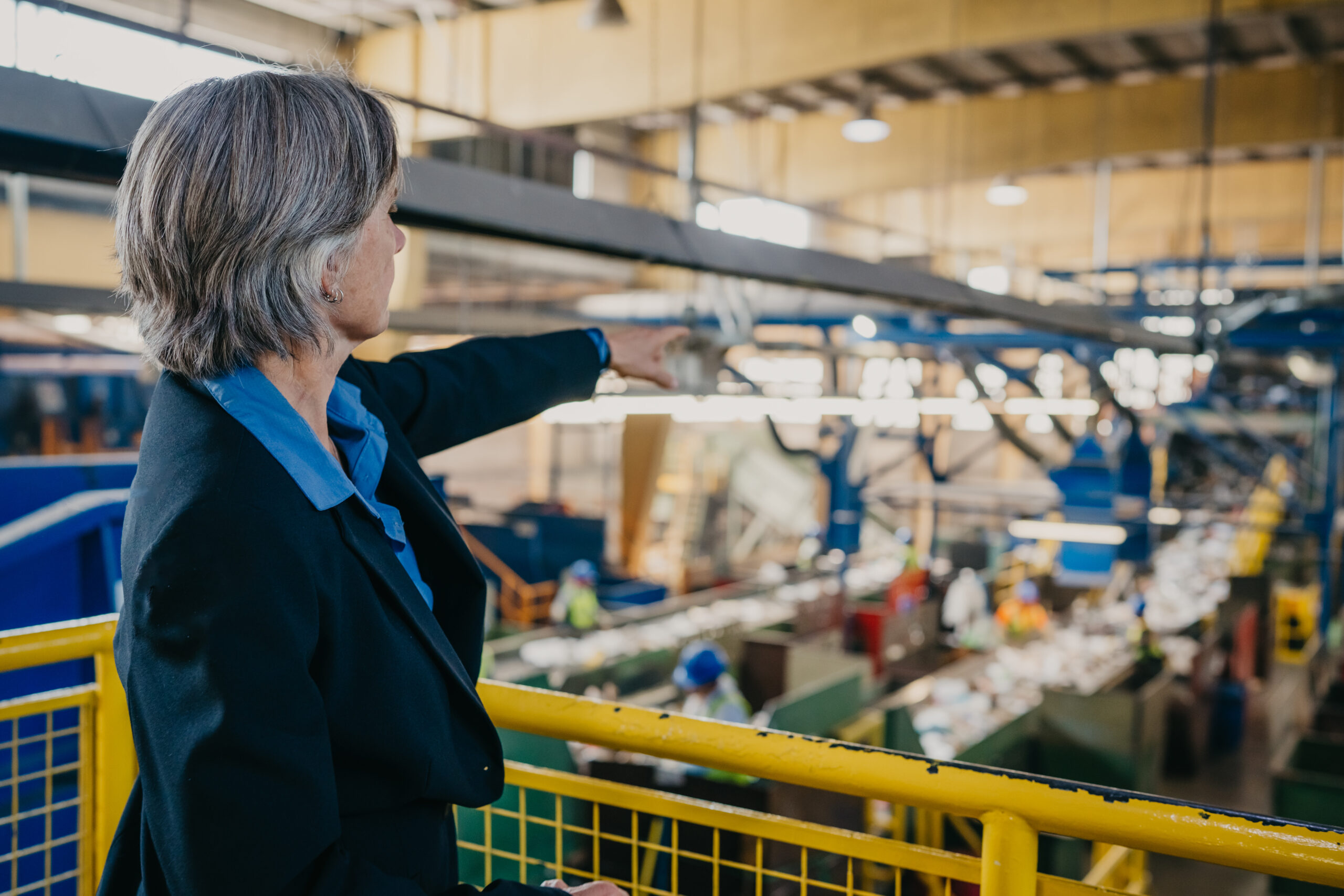
Composting, too, has a significant climate benefit and is one of Eco-Cycle’s current priorities. Nationally, a third of municipal waste is organic materials, such as food and yard trimmings, that generate the potent greenhouse gas methane when they decompose inside a landfill. But the same organics can become a force for good if they are instead turned into compost. Adding compost to soil increases the soil’s moisture retention and nutrient content and even enables it to sequester more carbon — a small step toward reversing climate change. Eco-Cycle is helping local farmers compost food scraps from restaurants and grocery stores so they can use the finished product, a system Jones calls a “win-win-win.”
Taking Responsibility
As Jones continued her work with EcoCycle, she won a second term on the city council and was elected mayor by her fellow council members from 2015-19. She and her colleagues persuaded their local electric utility to invest in more renewable energy, and they expanded bicycle and carpool infrastructure. They also significantly increased the requirement for permanently affordable housing in new developments.
After completing her mayoral term, Jones refocused her energy on expanding Eco-Cycle’s programs and leveraging its expertise for the benefit of her adopted state.
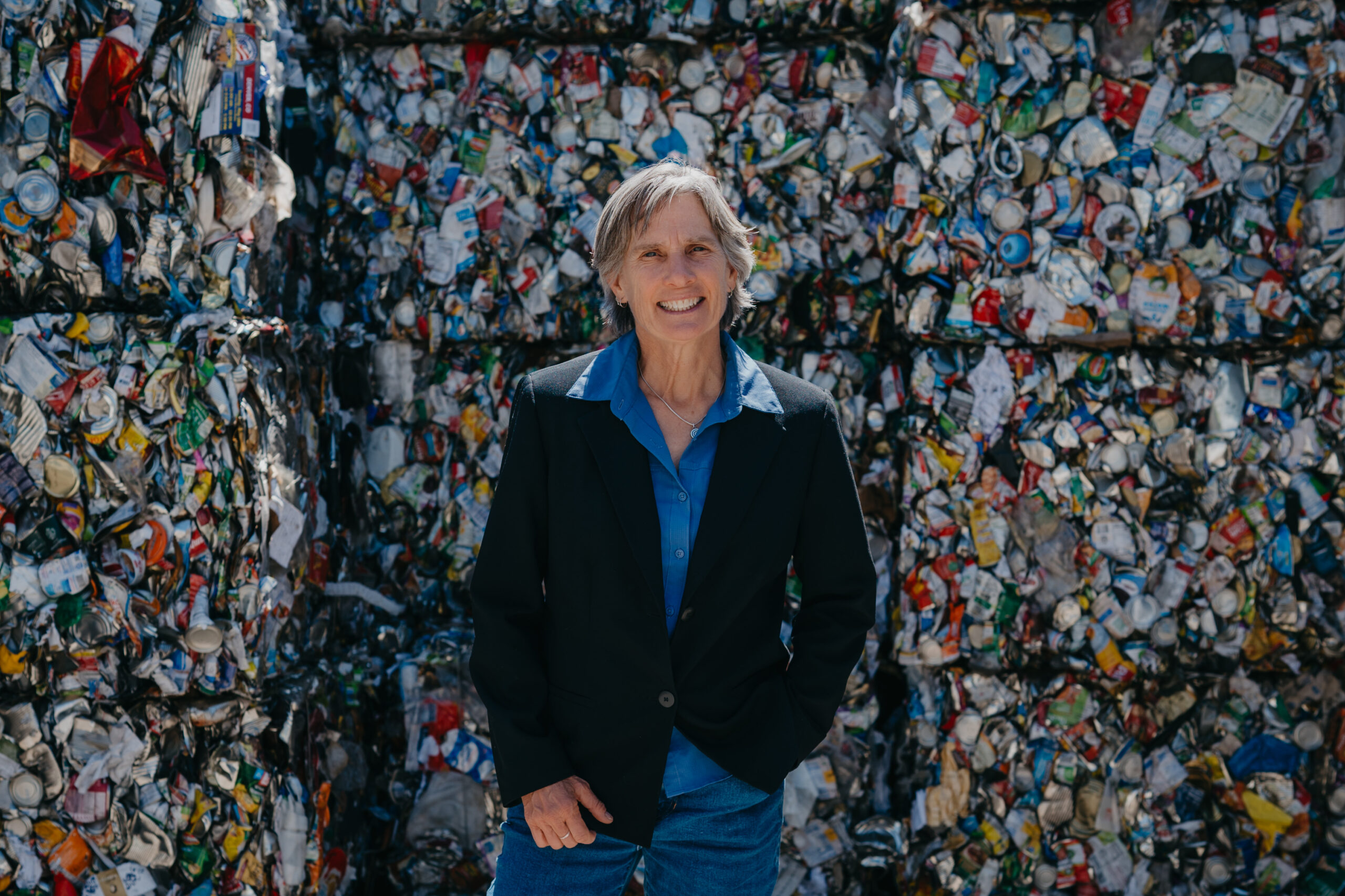
She and Eco-Cycle advocate for policies that make zero waste more attainable for cities statewide. In 2022 they scored a victory when Colorado passed a law requiring companies that sell products that come in packaging to fund a system to recycle that packaging. Despite its green image, Colorado diverts only 16 percent of its waste from landfills, a figure that’s less than half the national average, primarily because the state’s urban apartment complexes and far-flung rural areas both lack recycling services. The 2022 measure, called Producer Responsibility for Packaging, shifts the financial burden of building and operating recycling facilities from cities and counties to manufacturers and will incentivize companies to reduce the amount of packaging they use.
“That’s the transfer of responsibility back to the [companies] creating the problem that needs to be solved,” Jones says.
The work remains meaningful at a moment when climate protection is a much lower priority for the federal government.
“Optimism is a little harder to come by these days,” she says, “but the big challenges — and the desire to take them head on — remain.”
Robyn Ross is a freelance writer based in Texas.


